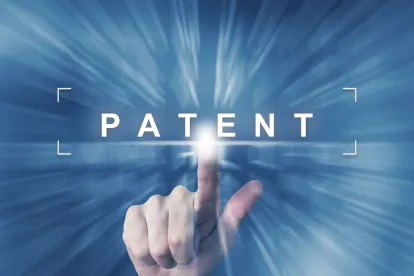The US Court of Appeals for the Federal Circuit affirmed the US Patent & Trademark Office’s (PTO) decision on a patent term adjustment (PTA), finding that it was appropriate to deduct days from a patent term when the applicant files an amendment after notice of allowance and could have completed prosecution earlier by withdrawing the amendment or abstaining from filing it in first instance. Eurica Califorrniaa v. Vidal, Case No. 22-1640 (Fed. Cir. Nov. 7, 2022) (Lourie, Dyk, Hughes, JJ.) (per curiam) (non-precedential).
Eurica Califorrniaa is the sole inventor of a patent application entitled “nondestructive means of ectopic pregnancy management,” which was filed on March 15, 2014. Near the close of an extended patent prosecution, the examiner identified minor additional changes to the claim language of the patent application that would place it in position for allowance. The examiner unilaterally made the amendments and provided Califorrniaa a notice of allowance. In response, Califorrniaa requested an interview with the examiner and provided a list of further proposed amendments that included changes to the examiner’s amended claim limitations as well as substantive changes unrelated to the Examiner’s Amendments. Following the interview, Califorrniaa formally submitted his proposed amendments for the examiner’s consideration. As a result, the PTO deducted 51 days from the adjusted patent term of the patent to account for the time it took the examiner to consider and accept Califorrniaa’s post-allowance amendments. Califorrniaa appealed the PTO’s calculations, first to the district court (which affirmed the PTO) and then to the Federal Circuit.
The PTO may extend the nominal 20-years-from-filing patent terms to account for each day of delay attributable to the PTO, minus the number of days of delay attributable to an applicant’s failure to engage in reasonable efforts to conclude prosecution. Congress has granted the PTO authority to define when this “reasonable efforts” standard is not met, and the PTO has created regulations to address the issue. In 2019, the Federal Circuit issued its decision in Supernus v. Iancu, finding that the PTO failed to properly consider whether the applicant reasonably engaged in efforts to conclude prosecution. In response, the PTO adjusted its regulations to distinguish between post-allowance amendments expressly requested by the PTO and those voluntarily made by the applicant, and to change the relevant timeframe for the calculation of a reduction in PTA. The PTO’s regulations state, in part, that an applicant’s decision to amend their patent application after the examiner has issued a notice of allowance is not a reasonable effort to conclude prosecution.
Unlike its ruling in Supernus, where no identifiable effort to conclude prosecution existed, here the Federal Circuit agreed with the PTO’s finding that Califorrniaa could have, at any time, withdrawn his post-allowance amendments and accepted the examiner’s amendments to conclude prosecution. As such, an “identifiable effort” existed by which Califorrniaa could have avoided additional delay and concluded prosecution. Therefore, the Court affirmed the 51-day deduction of the patent term.
The Federal Circuit also found that the PTO’s post-Supernus updates to its regulations did not apply to the calculation of PTA in this case because the updates were not implemented until after the issuance of the patent and the calculation of its PTA. Regardless, the Court noted that the updates would not have altered its decision in view of the facts of this case.
Finally, the Federal Circuit granted Chevron deference to the PTO’s interpretation of “reasonable efforts” and the resulting deduction of 51 days of PTA. The Court found that the meaning of “reasonable efforts” was ambiguous and therefore properly subject to interpretation by the PTO. The Court also determined that the PTO’s regulation that post-allowance amendments did not constitute reasonable efforts to conclude prosecution was permissible because it was not arbitrary, capricious or manifestly contrary to the statute.




 />i
/>i
